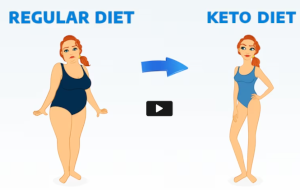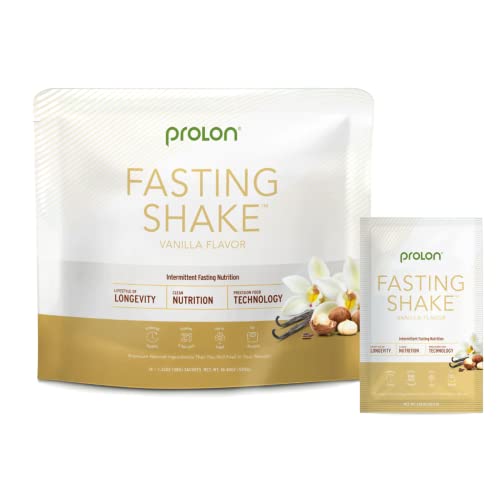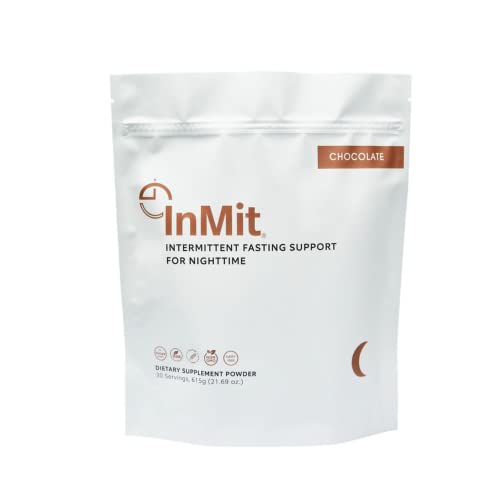In recent years, intermittent fasting has gained popularity as a powerful tool for achieving overall health and well-being. This age-old practice involves cycling between periods of eating and fasting, providing a range of benefits for both the body and mind. In this blog post, we’ll delve into the various aspects of intermittent fasting, addressing common questions and shedding light on its transformative effects on the human body.
What is Intermittent Fasting?
Intermittent fasting is an eating pattern that alternates between periods of eating and fasting. The focus is not on what you eat, but rather when you eat. Commonly, it involves restricting the eating window to a specific time frame each day or incorporating whole-day fasting on certain days of the week.
How long should you fast for health?
The duration of intermittent fasting can vary, but popular methods include the 16/8 method or the 5:2 method. The key is to find a fasting routine that aligns with your lifestyle and health goals.
16/8 Method:
The 16/8 method is one of the most popular forms of intermittent fasting. It involves a daily fasting window of 16 hours, during which an individual abstains from consuming calories, followed by an 8-hour eating window. The fasting period typically includes overnight hours, making it feasible for many people to skip breakfast and delay their first meal until later in the day. For example, someone practicing the 16/8 method might eat between 12:00 pm and 8:00 pm, fasting from 8:00 pm until noon the next day.
This method is relatively straightforward and can be easily incorporated into a daily routine. It aligns with the body’s natural circadian rhythm, emphasizing fasting during the nighttime hours and eating during the daytime.
5:2 Method:
The 5:2 method, also known as the Fast Diet, involves intermittent fasting on a weekly basis. In this approach, individuals eat regularly for five days of the week and restrict calorie intake on the remaining two non-consecutive days. On fasting days, individuals typically consume about 500-600 calories, focusing on nutrient-dense foods to ensure they meet essential nutritional needs despite the reduced calorie intake.
For example, someone following the 5:2 method might eat normally from Monday to Friday and then limit their calorie intake on, say, Tuesday and Thursday. This method provides flexibility in choosing which days to fast, making it adaptable to individual schedules.
Both the 16/8 method and the 5:2 method have gained popularity for their simplicity and potential health benefits. However, it’s important for individuals to choose the fasting approach that aligns with their lifestyle, preferences, and health goals. Before starting any intermittent fasting regimen, it’s advisable to consult with a healthcare professional, especially for individuals with pre-existing health conditions.
[As an Amazon Associate, I earn from qualifying purchases at no additional cost to you.]

The easier, faster, stress-free way to block carbs & stay slim. Guaranteed.
Clinically-proven, patented Reducose and 4 all-natural “slimming nutrients”. Blocks 32-40% of carbs from being stored as fat, and reduces blood sugar in under 60 minutes.

Discover the Organic Approach to Achieving Sustainable & Weight Loss and Maintaining Optimal Blood Sugar Levels
Combat weight gain, cravings, and fatigue with Ketosis – your solution for stable blood sugar and effective weight management.
How Fasting Heals the Body?
Fasting triggers various cellular repair processes, including autophagy, where cells remove damaged components. It also enhances hormone function, leading to improved insulin sensitivity and reduced inflammation, contributing to overall better health.
1. Autophagy:
Fasting induces a cellular process called autophagy, meaning “self-eating.” During periods of fasting, the body initiates a recycling system where cells break down and remove damaged components, including organelles and proteins. This self-renewal process helps cleanse the cells and promotes optimal cellular function.
2. Hormonal Regulation:
Fasting triggers a shift in hormone levels, particularly insulin and human growth hormone (HGH). Insulin sensitivity improves during fasting, reducing the risk of insulin resistance. Increased HGH levels aid in muscle preservation, fat metabolism, and overall growth and repair.
3. Inflammation Reduction:
Chronic inflammation is a contributor to various diseases. Fasting has been shown to reduce inflammatory markers in the body, potentially mitigating the risk of inflammatory conditions such as cardiovascular diseases and arthritis.
4. Cellular Repair and Longevity:
Fasting promotes cellular repair and enhances longevity by supporting the body’s ability to adapt to stress. This adaptation involves activating specific genes related to longevity and disease resistance, contributing to overall resilience.
5. Blood Sugar Regulation:
Intermittent fasting helps regulate blood sugar levels by improving insulin sensitivity. This is particularly beneficial for individuals at risk of or dealing with type 2 diabetes. By reducing the frequency of meals, fasting reduces the overall load on the pancreas and helps maintain stable blood glucose levels.
6. Fat Metabolism and Weight Management:
Fasting encourages the body to switch from using glucose as its primary energy source to burning stored fat. This metabolic shift aids in weight management and fat loss, addressing one of the major health concerns globally.
7. Cognitive Benefits:
Fasting has shown promising effects on brain health. It may enhance brain function, improve focus, and reduce the risk of neurodegenerative disorders. The production of brain-derived neurotrophic factor (BDNF) increases during fasting, supporting cognitive function and mental well-being.
8. Improved Cardiovascular Health:
Fasting may positively impact cardiovascular health by reducing risk factors such as high blood pressure, cholesterol levels, and triglycerides. These improvements contribute to a healthier cardiovascular system and a lower risk of heart diseases.
9. Enhanced Immune Function:
Fasting can support immune function by reducing inflammation and promoting the production of white blood cells. This may enhance the body’s ability to defend against infections and maintain overall immune health.

Discover the Organic Approach to Achieving Sustainable & Weight Loss and Maintaining Optimal Blood Sugar Levels
Combat weight gain, cravings, and fatigue with Keto Drops – your solution for stable blood sugar and effective weight management.

Discover the Organic Approach to Achieving Sustainable & Weight Loss and Maintaining Optimal Blood Sugar Levels
Combat weight gain, cravings, and fatigue with Premier Keto – your solution for stable blood sugar and effective weight management.
Does Fasting Have Side Effects?
While intermittent fasting is generally considered safe for many individuals, it’s essential to be aware that, like any dietary or lifestyle change, fasting can have both positive and negative effects. Understanding potential side effects and how to manage them is crucial for a successful and healthy fasting experience:
1. Hunger and Irritability:
- Side Effect: During the initial phases of fasting, some individuals may experience increased hunger, irritability, or mood swings.
- Management: Gradually easing into fasting, staying hydrated, and choosing nutrient-dense foods during eating windows can help manage hunger and mood fluctuations.
2. Fatigue and Low Energy:
- Side Effect: Fasting may lead to feelings of fatigue or low energy levels, especially if the body is not accustomed to the fasting routine.
- Management: Ensure proper hydration, prioritize adequate sleep, and consider adjusting the fasting duration or method to better suit your body’s needs.
3. Headaches:
- Side Effect: Some individuals may experience headaches, particularly in the early stages of intermittent fasting.
- Management: Stay well-hydrated, consider consuming electrolyte-rich beverages, and monitor caffeine intake, as sudden changes in caffeine consumption can trigger headaches.
4. Digestive Discomfort:
- Side Effect: Fasting might lead to digestive discomfort, including constipation or bloating.
- Management: Ensure a gradual transition into fasting, prioritize fiber-rich foods during eating windows, and stay adequately hydrated to support digestive health.
5. Nutrient Deficiency:
- Side Effect: Prolonged or inadequate fasting may potentially lead to nutrient deficiencies.
- Management: Focus on nutrient-dense foods when breaking the fast, consider nutritional supplements if needed, and consult with a healthcare professional to address specific dietary concerns.
6. Impact on Menstrual Health:
- Side Effect: Women may experience disruptions in menstrual cycles or hormonal balance with certain fasting protocols.
- Management: Pay attention to individual responses, consider modifying fasting methods, and consult with a healthcare professional, especially for women with underlying hormonal issues.
7. Risk for Certain Populations:
- Side Effect: Fasting may not be suitable for everyone, including pregnant or breastfeeding women, individuals with a history of eating disorders, or those with certain medical conditions.
- Management: Seek guidance from healthcare professionals before starting any fasting regimen, especially if you fall into a high-risk category.
8. Overeating During Eating Windows:
- Side Effect: There’s a risk of overeating or making unhealthy food choices during non-fasting periods.
- Management: Practice mindful eating, focus on balanced and nutritious meals, and avoid compensatory overeating.
9. Social and Lifestyle Challenges:
- Side Effect: Fasting may present challenges in social situations or daily routines.
- Management: Plan and communicate your fasting schedule with others, and find a flexible approach that accommodates your lifestyle.
What is OK During Fasting?
Intermittent fasting doesn’t mean complete deprivation; certain beverages and practices are generally considered acceptable during fasting periods. Understanding what is permissible can enhance the fasting experience and support overall well-being:
1. Water:
Water is a crucial element to stay hydrated during fasting. It helps in reducing hunger, supports digestion, and ensures the body functions optimally.
2. Herbal Tea:
Herbal teas, which are non-caffeinated, can be consumed during fasting. They provide hydration and can contribute to reducing hunger.
3. Black Coffee:
Black coffee, without added sugar or high-calorie creamers, is generally accepted during fasting. It can act as an appetite suppressant and may provide a slight energy boost.
4. Green Tea:
Green tea, with its antioxidants and minimal calories, is often considered acceptable during fasting. It can offer additional health benefits without disrupting the fasting state.
5. Bone Broth:
Bone broth is low in calories and can provide essential nutrients. It is a common choice for those looking to include some flavor and nutrients during fasting.
6. Electrolyte-rich Beverages:
Electrolyte drinks without added sugars can help maintain electrolyte balance during fasting, especially for individuals practicing extended or intense fasting.
7. Water with Lemon or Cucumber:
Infusing water with a splash of lemon or cucumber can add a hint of flavor without significantly impacting caloric intake.
8. Apple Cider Vinegar:
Diluted apple cider vinegar is often considered acceptable during fasting. It may have potential benefits for digestion and metabolism.
9. Supplements:
Certain supplements, such as vitamins and minerals, can be taken during fasting. However, it’s advisable to consult with a healthcare professional to ensure compatibility with the fasting regimen.
10. Medications:
Medications prescribed by healthcare professionals should be taken as directed, even during fasting periods. It’s essential to maintain consistency with medication schedules to manage health conditions effectively.
What to Take After Fasting?
Breaking a fast is a crucial moment that requires thoughtful consideration to ensure a smooth transition and optimal health benefits. Here’s a comprehensive guide on what to take after fasting:
1. Hydration:
Start by rehydrating with water. Proper hydration is essential after a period of fasting to replenish fluids and support overall well-being.
2. Electrolytes:
If you’ve practiced an extended or intense fast, consider consuming electrolyte-rich beverages or foods to restore electrolyte balance. This can include natural sources like coconut water or electrolyte supplements without added sugars.
3. Light and Balanced Meal:
Begin with a light and balanced meal that includes a mix of macronutrients—proteins, healthy fats, and carbohydrates. This could be a salad with lean protein, such as grilled chicken or tofu, and a variety of colorful vegetables.
4. Protein:
Prioritize protein intake after fasting. Protein is essential for muscle repair and growth. Good sources include lean meats, fish, eggs, legumes, or plant-based protein options.
5. Healthy Fats:
Incorporate healthy fats into your post-fasting meal, such as avocados, nuts, seeds, or olive oil. Healthy fats are crucial for nutrient absorption and satiety.
6. Fiber:
Include fiber-rich foods to support digestive health. Whole grains, vegetables, and fruits are excellent sources of dietary fiber that contribute to a well-rounded and nutritious meal.
7. Fruits and Vegetables:
Fresh fruits and vegetables provide essential vitamins, minerals, and antioxidants. These foods contribute to overall health and can add a refreshing element to your post-fasting meal.
8. Avoid Sugary Foods:
While it’s essential to consume carbohydrates, particularly complex carbs, avoid excessive intake of sugary foods or refined carbohydrates. These can cause rapid spikes in blood sugar levels.
9. Avoid Overeating:
Resist the temptation to overeat or consume large portions immediately after fasting. Gradually reintroduce food, allowing your digestive system to adjust.
10. Listen to Your Body:
Pay attention to your body’s signals. If certain foods cause discomfort or digestive issues, consider adjusting your choices. Mindful eating can enhance the post-fasting experience.
11. Consider Probiotics:
Probiotics, whether from fermented foods or supplements, can support gut health. Including yogurt, kefir, or sauerkraut in your post-fasting diet can introduce beneficial bacteria.
12. Stay Mindful of Portions:
Be mindful of portion sizes to avoid overloading your digestive system. Eating slowly and savoring each bite can enhance the digestion process.
13. Stay Hydrated Between Meals:
Continue to drink water between meals to stay adequately hydrated throughout the day. Proper hydration supports various bodily functions and aids in digestion.
14. Consider Nutritional Supplements:
Depending on individual nutritional needs, consider supplements like vitamins or minerals to ensure you meet your daily requirements. Consult with a healthcare professional for personalized advice.
Breaking a fast should be a gradual and mindful process. Choosing nutrient-dense foods, staying hydrated, and listening to your body’s cues can optimize the benefits of intermittent fasting. Additionally, consulting with a healthcare professional or a registered dietitian can provide personalized guidance based on your health status and goals.





















